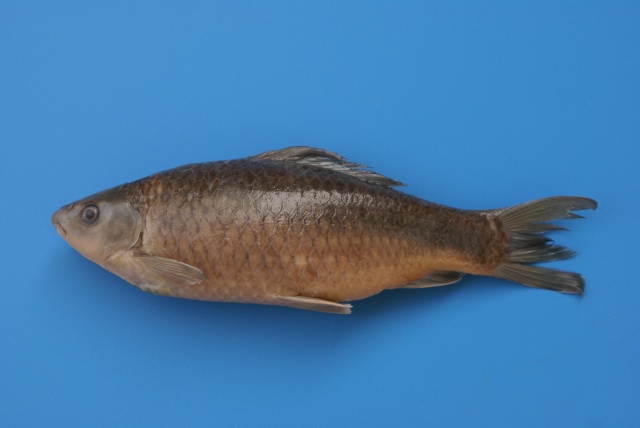| Cyprinidae (Minnows or carps), subfamily: Labeoninae |
| 60 cm SL (male/unsexed) |
|
benthopelagic; freshwater; pH range: 6.5; dH range: 5 - 8, potamodromous |
| Asia: Mekong and, Chao Phraya basins, Malay Peninsula, Sumatra and Borneo. |
|
Has 45-53 lateral line scales; 16-18 branched dorsal rays; an upturned mouth; a greenish to greyish body; a large, vertically elongated, blackish blotch above pectoral fin; sometime a faint round blotch on the caudal peduncle. |
| Occurs at midwater to bottom depths in rivers, streams, canals and swamps. Large individuals also occur in impoundments. Moves into seasonally flooded habits that supply its preferred diet of mostly periphyton as well as leafy plants like aquatic macrophytes and inundated land plants. Also feeds on phytoplankton, filamentous algae and benthic algae. Begins to return to the river in October, with numbers steadily increasing until January, when they begin to decline again. Large individuals are sold fresh or dried and salted, smaller ones are made into prahoc (Ref. 12693). |
|
Least Concern (LC); Date assessed: 21 April 2020 Ref. (130435)
|
| harmless |
Source and more info: www.fishbase.org. For personal, classroom, and other internal use only. Not for publication.
